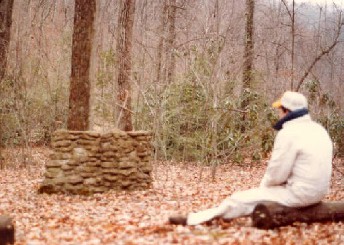|
"Don't let it be forgot, |
Rest in Peace, Camelot and Carlisle |
|
|
|
Sir: This letter should more rightfully appear on the obituary page, for it is a notice of death -- the death of Camps Camelot and Carlisle, Union Carbide Corp.'s employees' children's camps. June 13 marked the day the camps should have opened for their 35th year, and August 13 should have been the day they closed for the season, but instead, they have lain in silence as the woods and the animals move in to inhabit them once more. In a lush green valley in the eastern part of Kanawha County along a stream called Blue Creek, the camps served as a summer home to more than 25,000 children and staff members during its life. This is not mere personification, for they were alive -- alive with people of all ages from the youngest campers to a cook who was over 70 years old. The campers and staff were the lifeblood of Camps Camelot and Carlisle. They were the children and grandchildren of UCC employees, mostly from the Kanawha Valley. But the blood no longer flows. Camelot and Carlisle died a cruel and unnatural death, the victims of people who, as St. Exupery's Little Prince said, "... are concerned more with matters of consequence, than matters of the heart." These are people who have no feeling for the value of the magic of the glow of a campfire in the face of a child, the sound of a whippoorwill, or the peace of an early morning trail ride on horseback. They have never known or, more tragically, have forgotten what it is like to be a child -- to get gooseflesh from seeing foxfire in the trees, from hearing a screech owl, or from the sound of a song at an evening serenade. The camps will remain forever in the memories of those of us who had the privilege of participating, growing more and more perfect than they actually were. It saddens me to know that their experience will no longer enter into the memories of new campers, and that my children will be unable to receive the legacy. I am lucky, for I have the memory of the sound of the old steam locomotive bell that announced the days and their activities. Indeed, it is as if I were there when it rang for the last time on Blue Creek. As long as I remember that, the camps will live inside me, and inside others who have shared the experience. For, "the thing that is important is the thing that is not seen." This, like any obituary, will only be meaningful to the loved ones of the deceased, so I beg the indulgence of other readers. I also salute those who risked challenging their management to try to save Camelot and Carlisle. It was a valiant effort in spite of the outcome. "Here, then, is a great mystery. For you who love the little prince, and for me, nothing in the universe can be the same if somewhere, we do not know where, a sheep that we never saw has -- yes or no? -- eaten a rose..." He has. W. S. Mease, Charleston |
|||
